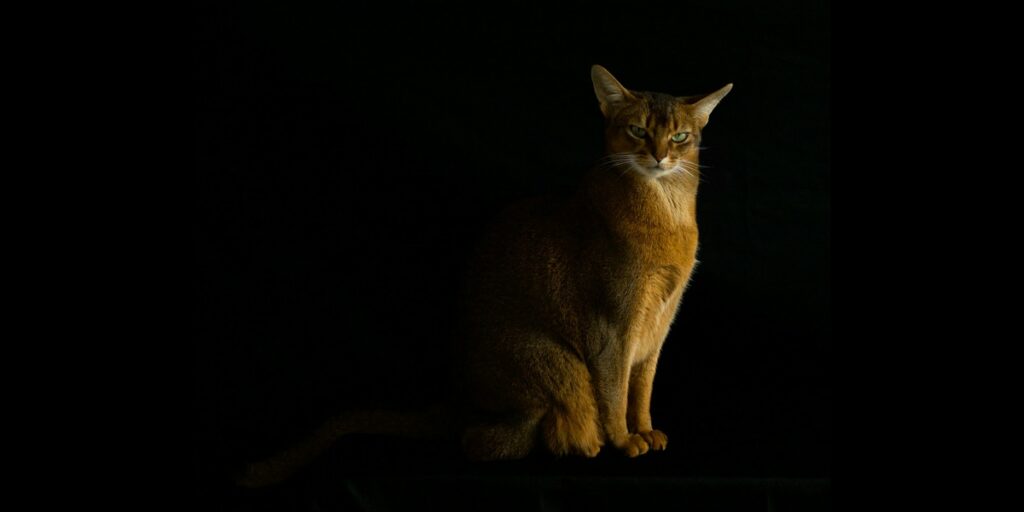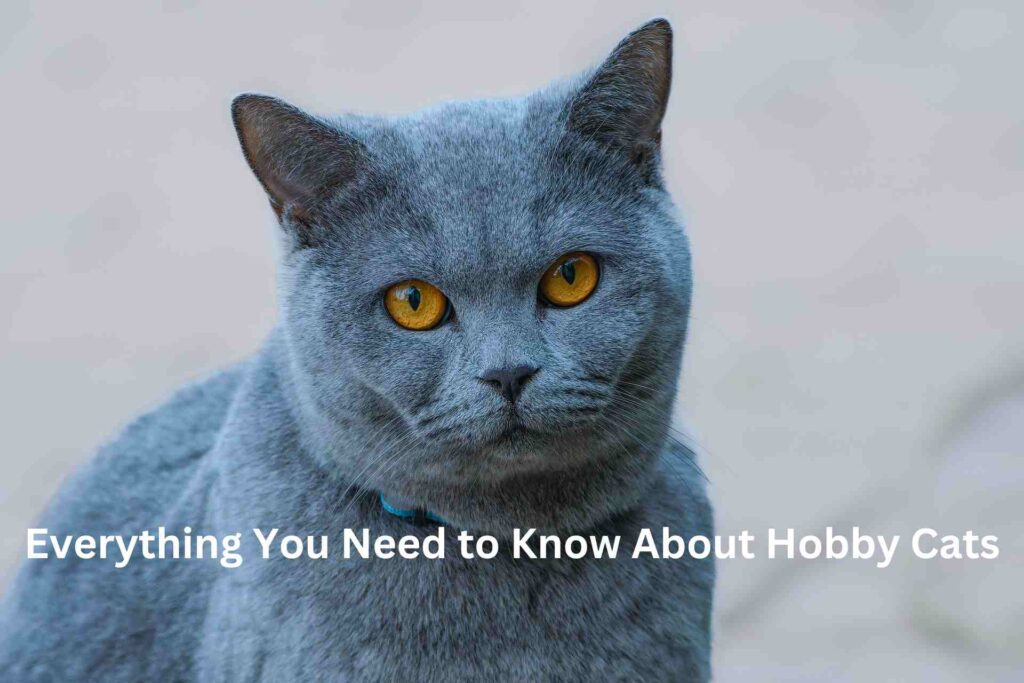
This breed really is an amazing type, captivating cat lovers with ancient lineage, striking beauty, and dynamic personality. Often associated with the revered feline depictions in ancient Egyptian art, the Abyssinian’s history is both interestingly fascinating and a bit mysterious, adding to its attractions. Known for their short, ticked coat and vibrant, almond-shaped eyes, Abyssinians have a wild, exotic look that sets them apart from other breeds. One of the oldest and most popular cat breeds worldwide, the Abyssinian cat remains a source of fascination with history, elegance, and boundless personality.
This breed comes with unique traits and spirited character. It makes them a joy to be around, but a demand for mental and physical stimulation places them in an environment capable of keeping up with energy and curiosity. Beyond their looks, though, these cats are appreciated for their intelligence, curiosities, and lively temperament. It would make them a very friendly pet to those in search of an active, affectionate companion.
Origins and History of the Abyssinian Cat
The Abyssinian cat is believed to be one of the oldest cat breeds, although the history may trace its origins to ancient Egypt. There is no evidence for this claim, but Abyssinians appear to be similar to the cats in Egyptian paintings. The breed as we know it today is probably the result of British 19th Century breeding. Although the first ‘official’ Abyssinian was brought back from Abyssinia (now Ethiopia) following British military campaigns. Genetic studies show that the origins of the breed are likely to be in Southeast Asia, along the coastlines of the Indian Ocean, where the ancestors of the Abyssinian cat were probably domesticated.
Abyssinian Cat Characteristics
Abyssinians are medium to large, muscular cats with an elegance and an athletic presence. Their very peculiar coat ticked mark represents hairs bearing alternating bands of color, giving them an extraordinary lively look. Characterized by quite large, intense almond-shaped eyes. It can be gold to green in color, and enormous ears with a sharp, watchful appearance, Abyssinians usually weigh between 8 to 12 pounds, although the males tend to be slightly larger than females.
Abyssinian Cat Personality and Temperament
The Abyssinian is playful, curious, and loves, as if it is somewhat like a “doggy”. It is highly intelligent, also enjoys interaction with its human masters so that it does quite fit well in households with significant amount of attention for pets. Abyssinians love jumping and climbing up onto tall spaces. In turn, cat trees and elevated perches would become essential for both physical and mental health. While they bond with their owners, Abyssinians are not generally lap cats. They prefer active involvement, such as fetching or learning tricks.
Abyssinian Cat Colors and Patterns
Approved coat colors in the Abyssinian breed standard include several coat colors, all having this ticked-coat breed characteristic:
- Ruddy: This is the most common color. It has a warm brown base, ticked black.
- Cinnamon: Pale reddish-brown in colour with chocolate ticking and appears very soft, warm.
- Blue: Muted, cool toned on the whole but with nice contrast due to a slate-blue ticking.
- Fawn: The lightest color variation, with a soft tan or beige but a subtle ticking to the coat.
- Red and Silver Abyssinian Cat: Less common than the above, these are additional forms and are becoming popular among enthusiasts.
Cinnamon Abyssinian Cat:
The cinnamon Abyssinian is one of the most recognizable colors in this breed, with its warm reddish-brown coat. It gives them an impressive almost burnt-orange color and their ticked fur pattern, so they look like small pumas or cougars. Like all Abyssinians, the cinnamon varieties are playful, energetic, and devoted to their owners.
Abyssinian Cat Mix:
A mix of an Abyssinian and another breed may present the desired qualities of an Abyssinian with characteristics from another breed. The result might be something unique in looks and personality. The mixed breed is not going to resemble the classic Abyssinian coat, but it will retain that intellect, curiosity, and energy for which this breed is prized. Mixed-breed Abyssinians may take on some special coat patterns or colors. These mixes often inherit a social and active temperament, and they are just as entertaining companions.
Abyssinian Tabby Cat Mix

A combination of an Abyssinian with a regular tabby or having spots or stripes upon it leads to a special combination of both the typical type of a tabby and Abyssinian’s ticked coat pattern. This entails an extremely intriguing mix of both the patterns and leads to results in an athletic and affectionate personality, but never losing variety in color and pattern by having it. These cats prove to be an ideal selection for those who wish to have elegance regarding the Abyssinian while fancying classic markings of the tabby.
Abyssinian Black Cat:
Black-coated Abyssinians are very scarce, since this breed’s ticked pattern shows more often in colors such as cinnamon or blue. A black Abyssinian might have an even deep color, or slight ticking in darker shades. But the dynamic intelligence, personality trait, that makes up the breed, is not altered by this unusual color. This mystery and elegance only add to that seemingly irresistible breed.
Abyssinian Breeders:
Abyssinian breeders keep the standard of the breed to such an extent that one would find unique features in the coat ticking, lively personality, and robust health. A good breeder will not sell unhealthy cats or those that possess a bad temper. They should be able to socialize the cats nicely and be free from genetic disorders. A good breeder is informed, and with his help, would-be owners can get insights into caring for the breed and its needs. Good breeders also inform about maintaining the Abyssinian active and meeting their social requirements.
Silver Abyssinian Cat:
The silver Abyssinian is a rare and gorgeous variant with a cool silvery coat that gives the cat a unique, nearly regal look. The peculiar color is caused by a genetic mutation which somehow decreases the warmth of the normal cinnamon or fawn hues, replacing them with a frosty gray. Silver Abyssinians retain the same ticked pattern. This adds to a stylish look without any compromise on its playfulness or curiosity nature. It is a color variation so rare that enthusiasts of the Abyssinians cannot get enough of it.
Health and Lifespan
Like other breeds of cats, Abyssinians are healthy but may have a predisposition to various genetic diseases. Examples include the following:
Progressive Retinal Atrophy (PRA):
This is a degenerative eye disorder where the eyes become blind.
Renal Amyloidosis:
This is a kidney disease, often found in older Abyssinians.
Patellar Luxation:
The kneecap can dislocate, which affects their agility. A regular veterinary check-up and genetic testing, when it is available, will enable the early detection of such conditions, allowing proper care and intervention to follow.
Price of Abyssinian Cats and Where to Buy
The price of an Abyssinian cat ranges from $500 to $1,500 depending on the reputation of the breeder, lineage, location, and scarcity of color. For example, silver or red colors are rarer and will cost more. You should source your Abyssinians from registered breeders who focus on ethical breeding and are able to give you health guarantees. Pure-bred or mixed Abyssinians are available at a lower cost from adoption agencies and rescue organizations of Abyssinian cats.
Care Requirements for an Abyssinian Cat
An Abyssinian needs to get both physical and mental care:
Grooming:
Abyssinians have short coats that are not much work to care for. Their coats just need weekly brushing to remove dead hair and shine.
Exercise and Mental Stimulation:
Abyssinians need a lot of toys, interactive play, and climbing spaces because of the high energy. Puzzle feeders are perfect as enrichment tools to keep the mind active.
Diet:
These cats need balanced, protein-rich diets. The positive side of Abyssinians is that they can thrive on both high-quality wet and dry foods, but this would certainly depend on the veterinarian’s prescribed requirements for their diet.
Socialization:
Abyssinians do not adapt well to prolonged periods of confinement. They love places where they can relate to people or other pets, like dogs, as these are generally friendly due to their nature.
Abyssinian Mixes and Hybrids
Due to this, there have been lots of hybrid varieties, as in the case of the Abyssinian-tabby or Abyssinian-Siamese mix. These mixes are a breed unto themselves with quite often producing personalities and a look unlike either parent. For example, an Abyssinian-tabby mix will maybe carry the sleek, athletic build of the Abyssinian but with a tabby pattern. While an Abyssinian-Siamese blend may be built like the Abyssinian but with the playfulness of the Abyssinian and the vocalness of the Siamese.
Fun Facts and Special Features
- Intelligence: Abyssinians are classified among the intelligent cat breeds. They can easily learn tricks and may even respond to some training commands.
- Curiosity Over Water: Unlike other cats, Abyssinians often still find water very interesting at times. They may be playing with splashing in it or how it flows.
- Affectionate but Independent: They are affectionate, but they like to express it through play and interaction rather than being a lap cat. They have a strong need to be independent, yet they are very loyal and will often move around the house with their owner.
Conclusion
The Abyssinian cat is something of a paragon of both intellect and athleticism, set to make a beautiful companion for the discerning owner, whom they will reward with their affectionate personality if their high energy levels and social requirements are matched. Minimal grooming needs combined with the fascinating personality only add to the qualities that make Abyssinians rewarding companions for owners who can provide a stimulating, affectionate home. Whether you like their unique ticked coat, the jovial personality, or their majestic and historical lineage, Abyssinians are a breed that tugs at your heartstrings and brings happiness and warmth into any household where they find themselves.
FAQs
Abyssinians are otherwise pretty healthy cats but do have genetic predispositions to diseases like Progressive Retinal Atrophy and renal amyloidosis. Regular vet visits and screenings help mitigate those risks.
Abyssinians love to thrive in conducive environments; hence, love interactive toys and climbing structures as well as lots of human interaction. They do their best when they have less time spent away alone.
An Abyssinian cat can cost between $500 and $1,500 depending on the lineage, color, reputation of a breeder, and location.




